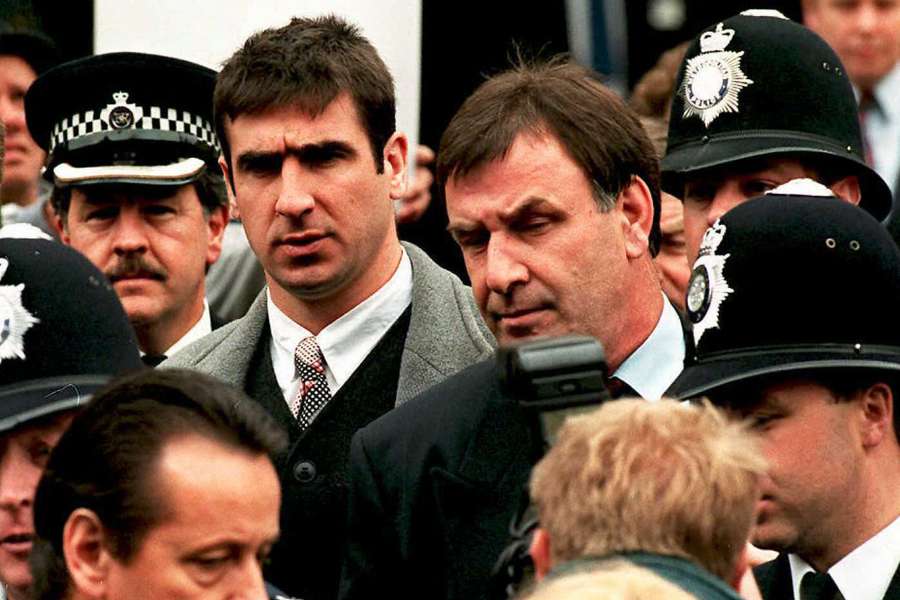The £55 million club record star will now be out of action for most of the season as Newcastle look to balance their squad in a campaign where they must contend with Champions League football as well as domestically.
He will also undergo an eight-month gambling rehabilitation programme as part of an agreement with the FIGC, according to chief Gabriele Gravina.
Of course, it's not the first time a lengthy ban has been dished out to a high-profile player in English football.
Flashscore has compiled a list of 10 more shocking and infamous examples of big names being banned for prolonged periods from the beautiful game.
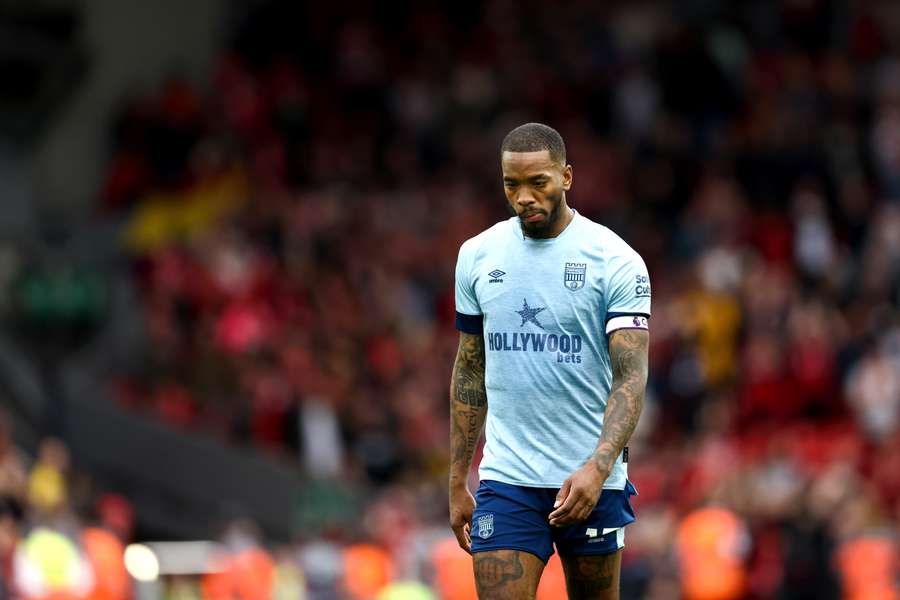
Ivan Toney
The most recent example of a lengthy football ban prior to Tonali is that of England and Brentford forward Ivan Toney.
In strikingly similar circumstances to that of the Italian, Toney was banned for eight months back in May after admitting 232 breaches of the Football Association's betting rules.
It was a stinging blow for player, club and country as the big centre forward was in splendid goalscoring form at the time, too.
Toney was banned until January 16th, 2024, as well as fined £50,000. Initially, he wasn't allowed to even partake in training but those rules have softened somewhat and the striker has been involved with Thomas Frank's side in the background again.
The ban also prompted England manager Gareth Southgate to suggest a different approach to players with addiction problems in future, suggesting a support network would be more useful than a banishment.
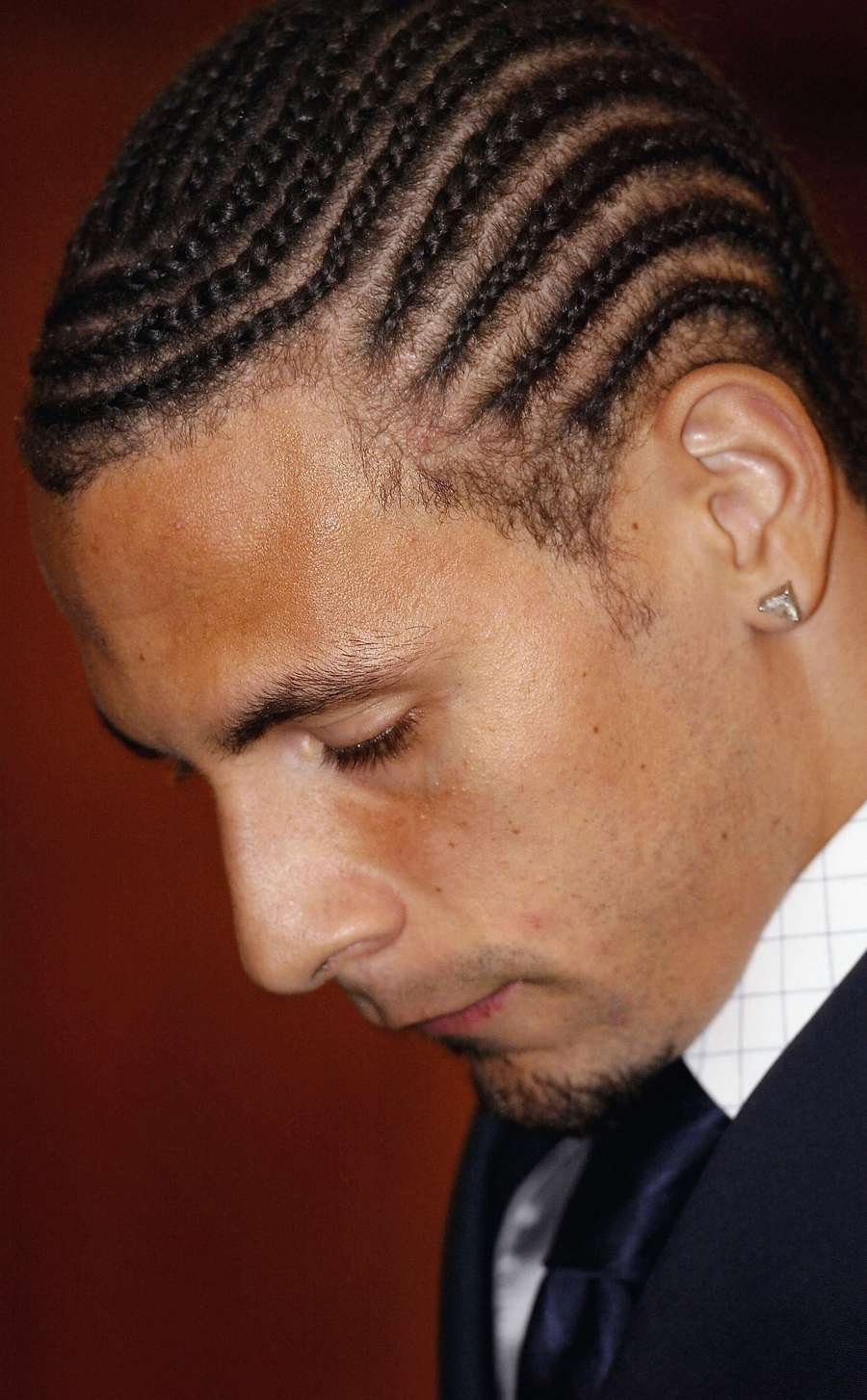
Rio Ferdinand
The England and Manchester United legend was shockingly banned for eight months in 2004 after his failure to complete a random drug test in September 2003, having been selected to give a sample to UK Sport doping officials at United's training ground.
Ferdinand - arguably one of the best English talents at the time - maintained his innocence throughout the investigation.
Ultimately his appeal was unsuccessful, with the world-class centre-back missing out on England's Euro 2004 campaign as a result.
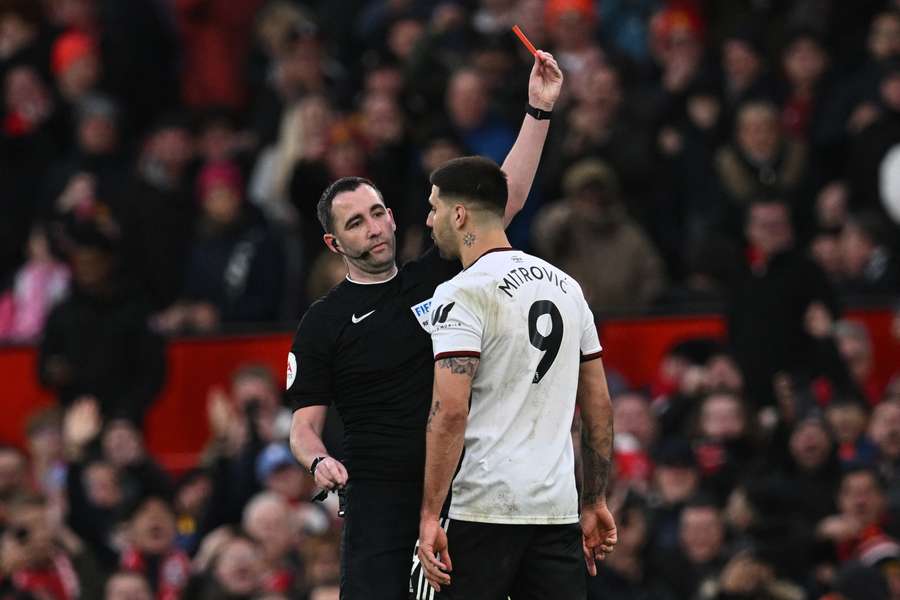
Aleksandar Mitrovic
During an FA Cup game for Fulham last season against Manchester United, the often controversial and hot-headed Serbian striker lost his cool with referee Chris Kavanagh, proceeding to shove the official and earning himself a red card.
That earned him an automatic three-match suspension, but the ban was extended to eight matches following a violent and improper conduct charge from the FA.
The forward admitted another two further offences for using language that was "improper, abusive, insulting and threatening", landing him a £75,000 fine, but unsuccessfully disputed the charge of violent conduct and was made to sit out a key run of fixtures for his club.
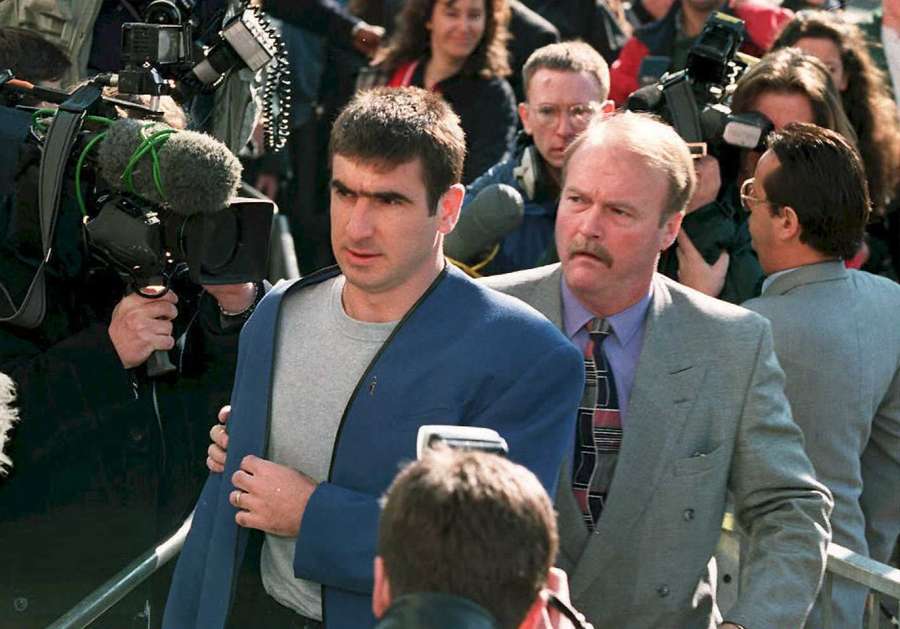
Eric Cantona
In a moment of madness seen by many as an iconic Premier League moment, Frenchman Eric Cantona wildly kicked out at an opposition fan in the stands of Selhurst Park after having already seen a red card for Manchester United against Crystal Palace in 1995.
As King Eric made his way down the touchline, the fan in question supposedly taunted the striker enough to prompt him to dive over the advertising boards and launch an astonishing studs-up "kung-fu kick" into his face.
What resulted was one of the most infamous court cases relating to a footballer in English football history.
Despite appealing through the courts, Cantona was suspended from football for nine months by the FA. He was also ordered to complete 120 hours of community service and narrowly missed out on a jail sentence for assault.
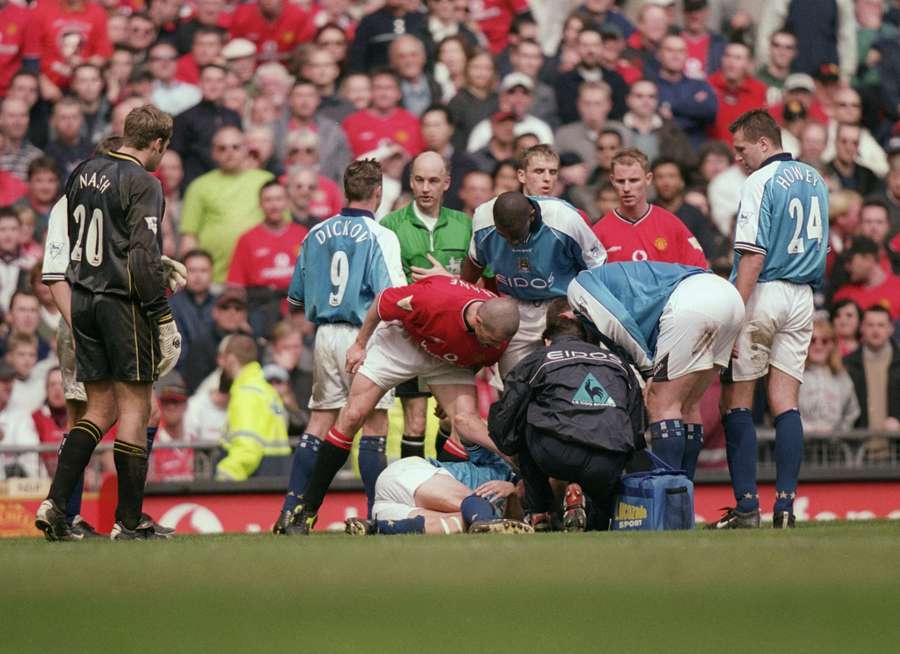
Roy Keane
Manchester United captain Roy Keane was suspended for five matches in 2002 after shocking revelations from his first autobiography, where the Irishman admitted that he had deliberately set out to hurt Manchester City's Alf Inge Haaland in a game in April 2001.
An infamous and unsavoury event at the time as it was, Keane wrote in his book: "I'd waited almost 180 minutes for Alfie, three years if you looked at it another way. I'd waited long enough. I hit him hard. The ball was there (I think). Take that."
That was enough for the FA to bring about two charges of bringing the game into disrepute, resulting in the extended ban plus a record £150,000 fine.
In a second autobiography released in 2014, Keane backtracked somewhat on his ferocious claims, stating: "I did want to nail him and let him know what was happening. I wanted to hurt him and stand over him and go: 'Take that, you c***.'
"I don't regret that. But I had no wish to injure him. It was action; it was football. It was dog eats dog."
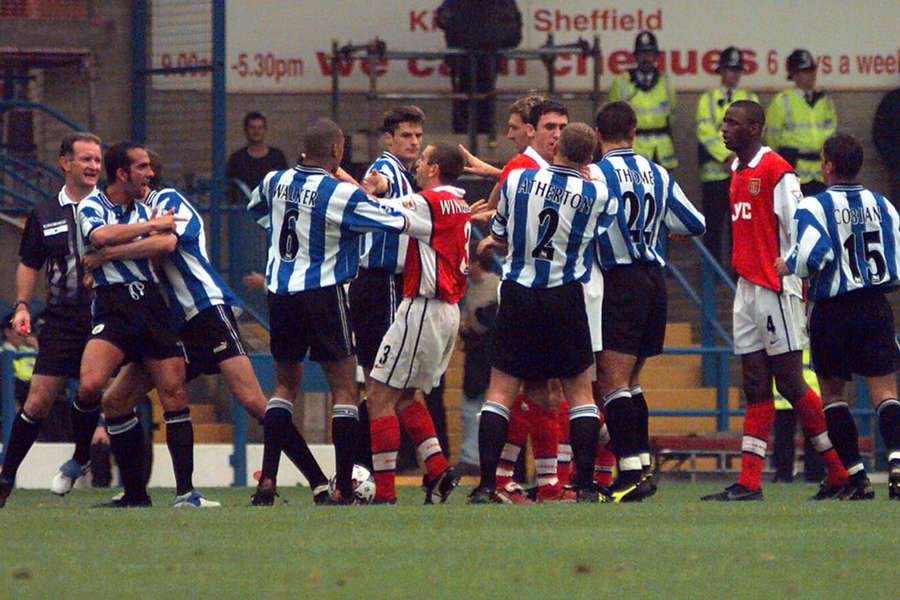
Paolo Di Canio
Another chaotic moment forever enshrined in the annuls of Premier League folklore, Sheffield Wednesday's Paolo Di Canio - while remembered for his many enigmatic displays in English football - is probably most recognised for his push on referee Paul Alcock during his side's home match with Arsenal in 1998.
The fiery Italian was rather aggrieved with a decision from the official which resulted in him giving a hearty shove.
The comical back-stepping from Alcock's fall bore a resemblance to something fresh out of a Laurel and Hardy bit.
A straight red came flying back at Di Canio, as well as a subsequent 11-match ban and £10,000 fine.
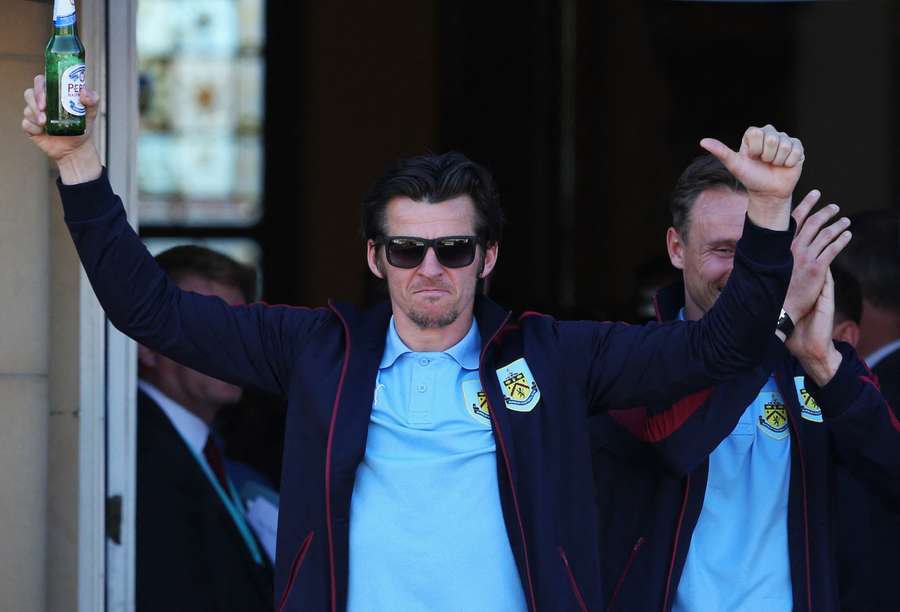
Joey Barton
Certainly one who's never been a stranger to controversy, Joey Barton's lengthiest ban came in April 2017 after the then Burnley player admitted a charge of betting-related misconduct relating to a whopping 1,260 bets on football matches between 2006-2016, including some that he had actually played in.
He was initially given an 18-month ban from football, although a successful appeal saw that verdict shortened to five months.
Lest we forget though, the Englishman has also seen numerous incidents resulting in time off the pitch, including (but not totally limited to) a training ground assault on Manchester City teammate Ousmane Dabo in 2007 (which left Dabo unconscious and with a detached retina).
For that, Barton landed himself a four-month suspended prison sentence and violent conduct charge by the FA. He was banned for six matches with a further six-match ban suspended for two years.
He also received a 12-match ban for his antics playing for QPR in the final game of the 2011/12 season against Manchester City - famous mostly for that late Sergio Aguero winner - where after earning a red card for elbowing Carlos Tevez in the face, he proceeded to kick Aguero in the back and attempted to headbutt Vincent Kompany on his way off the pitch. Charming!
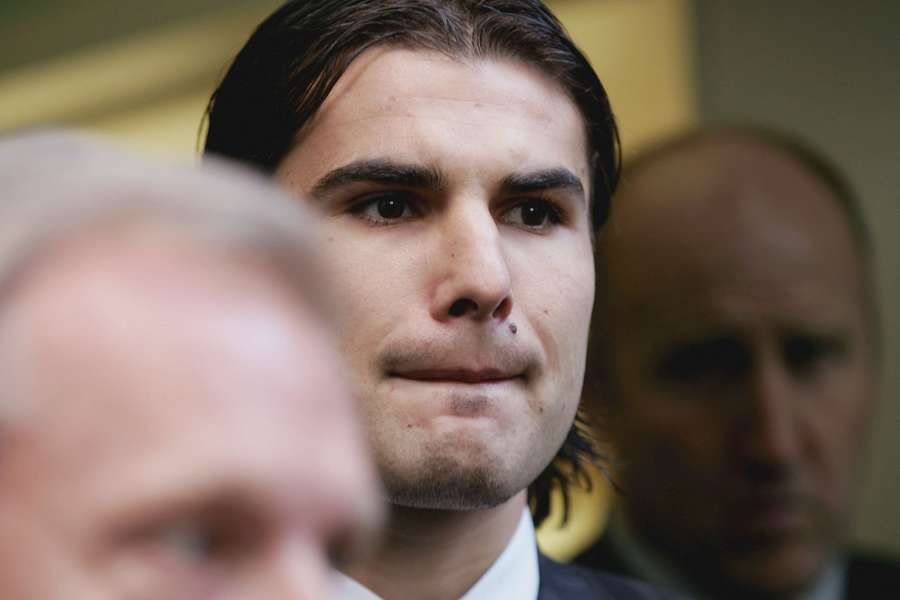
Adrian Mutu
One of the early big-money signings under the new Roman Abramovich era at Chelsea, Romainian forward Adrian Mutu admitted to using cocaine after returning a positive drug test in 2004.
The 25-year-old would later be banned from all football for seven months as well as sued by Chelsea, who accused him of a breach of contract.
Despite appealing, Mutu eventually lost the court case and was forced to pay the club over £14 million in damages.
He subsequently signed a five-year contract with Juventus who didn't mind his tarnished reputation all that much.
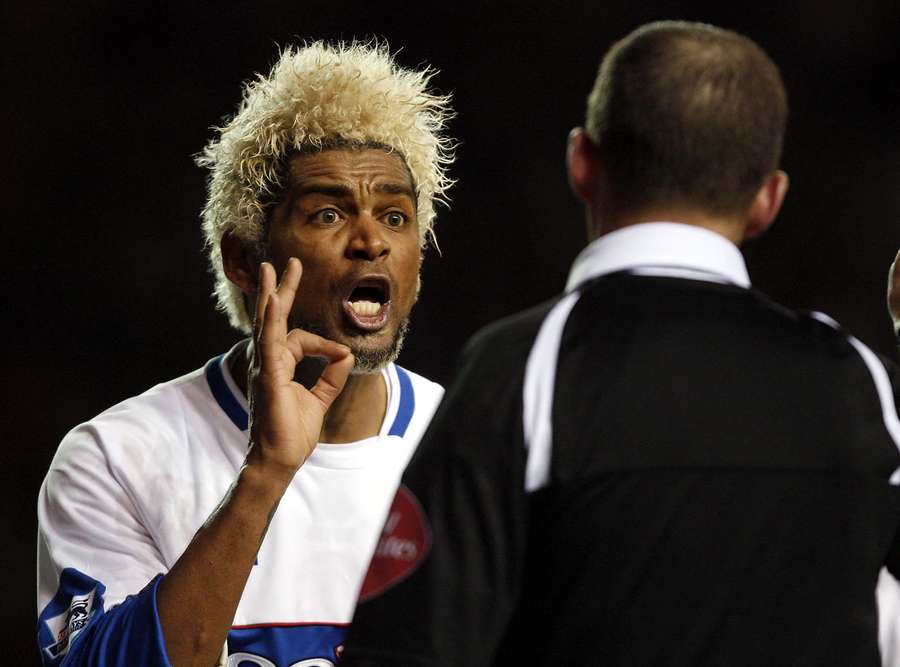
Abel Xavier
Portuguese international Abel Xavier became the first ever Premier League player to be found guilty of using performance-enhancing drugs during his time at Middlesbrough in 2005.
The former Everton, Liverpool and Roma defender was found guilty of taking anabolic steroid methandrostenolone and banned for 18 months by the FA, although it was later reduced to just a year. He played at Boro for another year afterwards.

Mark Bosnich
Another Chelsea player to be reprimanded for cocaine use, Australian goalkeeper Mark Bosnich fell foul to the baggy with a failed drug test in 2003.
The FA handed the former Manchester United stopper a nine-month ban and he had his contract terminated by the West London club shortly after, although Bosnich maintained his innocence to some degree: "Yes, I took drugs but only once my career was over. I have no regrets. I owe football absolutely nothing," he said.
He retired not long after and was said to have spiralled further into his addiction before making a comeback some five years later in his homeland.

